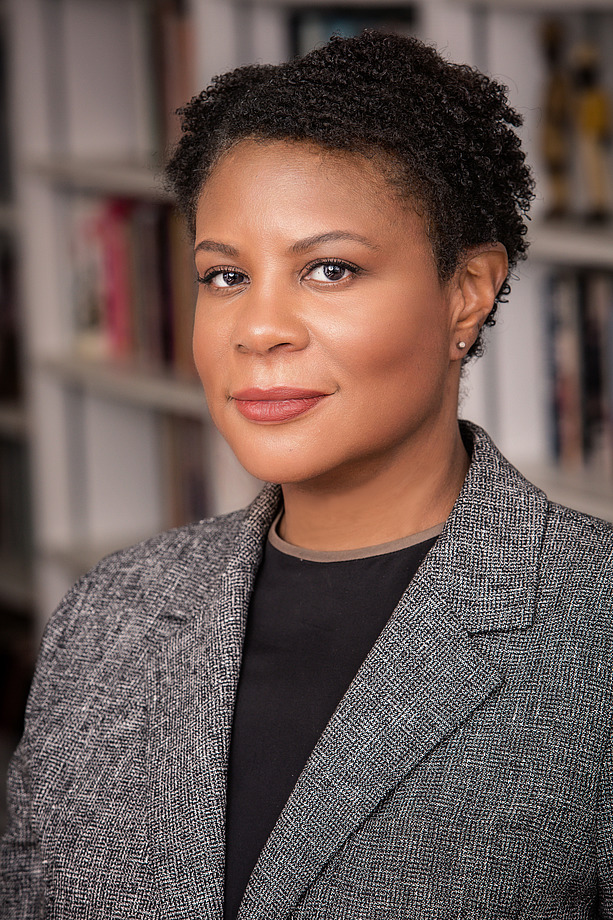Alondra Nelson
Harold F. Linder Professor
Widely known for her research at the intersection of science, technology, and society, Alondra Nelson holds the Harold F. Linder Chair and leads the Science, Technology, and Social Values Lab at the Institute for Advanced Study, where she has served on the faculty since 2019.
From 2021 to 2023, she was deputy assistant to President Joe Biden and acting director and principal deputy director for science and society of the White House Office of Science and Technology Policy (OSTP). Nelson was the first person to serve in the latter role, which brought social science expertise explicitly into the work of federal science and technology strategy and policy. She led the development of the White House “Blueprint for an AI Bill of Rights,” a cornerstone of President Biden’s Executive Order on the Safe, Secure, and Trustworthy Development and Use of Artificial Intelligence.
In recognition of Nelson's impactful OSTP tenure, in 2022 Nature named her to its global list of the 10 People Who Shaped Science. In 2023, she was included in the inaugural TIME100 list of the most influential people in AI, and was appointed by United Nations Secretary-General António Guterres to serve on the UN High-level Advisory Body on Artificial Intelligence following her nomination by the White House. In 2024, President Biden appointed Nelson to the National Science Board, which establishes policies for the National Science Foundation and advises Congress and the President.
Nelson previously served on the faculty of Columbia University, where she was the first Dean of Social Science and professor of sociology. She was formerly the 14th president and CEO of the Social Science Research Council, an independent, international nonprofit organization, developing innovative programs that brought foundational research to bear on key social challenges. She began her academic career on the faculty of Yale University, where she was recognized with the Poorvu Award for Interdisciplinary Teaching Excellence.
Her research offers a critical and innovative approach to the social sciences in fruitful dialogue with other disciplines. Nelson's major research contributions are situated at the intersection of racial formation and social citizenship, on the one hand, and emerging scientific and technological phenomena, on the other. She connects these dimensions in award-winning and acclaimed books, including The Social Life of DNA: Race, Reparations, and Reconciliation after the Genome (2016); Body and Soul: The Black Panther Party and the Fight against Medical Discrimination (2011); Genetics and the Unsettled Past: The Collision of DNA, Race and History (2012; with Keith Wailoo and Catherine Lee); and Technicolor: Race, Technology and Everyday Life (2001; with Thuy Linh Tu). Professor Nelson has also contributed articles to Science, PLOS: Computational Biology, PLOS: Medicine, Genetics in Medicine, the Proceedings of the International Conference on Machine Learning, Foreign Affairs, and the American Journal of Public Health.
Nelson is currently at work on a book about science and technology policy in the Obama-Biden and Biden-Harris administrations; a series of essays exploring how the conditions exposed, exacerbated, and created by the emergence of the novel coronavirus prompt reconsideration of prevailing ideas of society; and research on platform society and AI governance.
Professor Nelson is a distinguished senior fellow at the Center for American Progress. As a policy researcher and adviser, she provides guidance on domestic and international policy matters to local, state, and federal governments, legislators, multilateral and international organizations, and the philanthropic sector. She has participated in the U.S. Senate AI Insight Forum, served as a member of the High-level Advisory Body on AI that issued the United Nations' Governing AI for Humanity report, and contributed to the first International AI Safety Report.
She has held visiting professorships and fellowships at the Max Planck Institute for the History of Science, the BIOS Centre at the London School of Economics, the Bayreuth Academy, and the Bavarian American Academy. Her research has received support from the National Science Foundation and leading private foundations, including Ford, Andrew W. Mellon, Alfred P. Sloan, Kavli, Heising-Simons, John D. and Catherine T. MacArthur, and Surdna.
Nelson's essays, reviews, and commentary have appeared in leading media outlets, including The New York Times, The Washington Post, The Wall Street Journal, Die Zeit, Le Nouvel Observateur, Wired, and La Recherche. Her work has also been featured on CNN, National Public Radio, CBC, Bloomberg, and the BBC, among other venues.
Nelson holds honorary degrees from Northeastern University, Rutgers University, and the City University of New York. Her honors include the MIT Morison Prize, the Federation of American Scientists Public Service Award, the Morals and Machines Prize, and the Sage Publishing and Center for Advanced Study in the Behavioral Sciences (Sage-CASBS) Award from Stanford University for "outstanding achievement in the behavioral and social sciences that advances our understanding of pressing social issues." She was also awarded the inaugural Friedrich Schiedel Prize for Social Sciences and Technology from the Technical University of Munich for "pioneering work and outstanding and field-building contributions at the intersection of social sciences and technology."
Nelson is an elected member of the American Academy of Arts & Sciences, the American Academy of Political and Social Science, the American Association for the Advancement of Science, the American Philosophical Society, the Council on Foreign Relations, and the National Academy of Medicine.
Raised in Southern California, Nelson received her BA in Anthropology from the University of California, San Diego, where she was elected to Phi Beta Kappa. She earned her PhD in American Studies from New York University in 2003.
